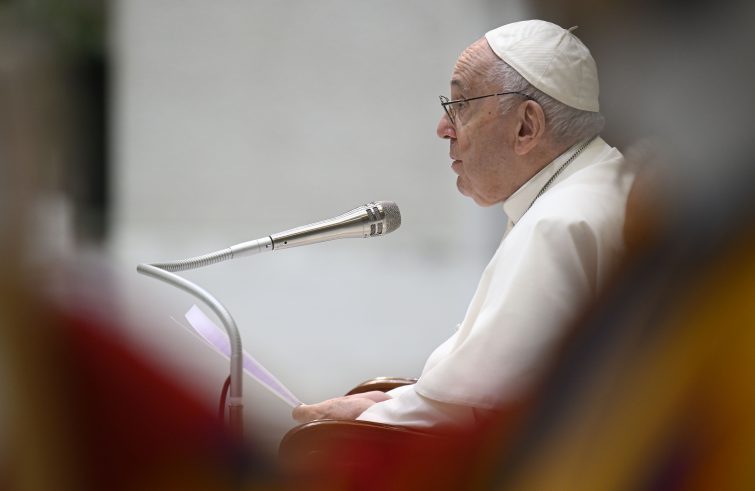
“We do not find set before us, pre-packaged, the life we are to live”, the Pope said, opening a new cycle of catechesis on discernment in Paul VI Hall. Discernment, he said, “involves hard work”, but it is “indispensable for living.” At the end of the audience, during the greetings, Francis made a renewed appeal to pray for the Ukrainian people and to address the “the twin crises of climate and biodiversity loss”, at the UN COP27 and COP15 summits. The Pope voiced his concern for the violent events in Baghdad, wishing peace, fraternity and dialogue for the Iraqi people, and recalled the earthquake that hit the Italian towns of Amatrice, Accumoli and Arquata del Tronto on August 24, 6 years ago: “I do hope that institutions and people of goodwill will continue providing support for life to be reborn in these lands,” were the words addressed to the Italian faithful.
“God invites us to evaluate and choose: He created us free and wants us to exercise our freedom”, Francis explained: “Therefore, discerning is demanding.” “We have often had this experience: choosing something that seemed good to us and yet was not. Or knowing what our true good was and not choosing it”, the Pope contextualised: “Human beings, unlike animals, can be wrong, can be unwilling to choose correctly – freedom, no? And the Bible shows this from its very first pages. God gives man a precise instruction: if you want to live, if you want to enjoy life, remember that you are a creature, that you are not the criterion of good and evil, and that the choices you make will have a consequence, for you, for others and for the world; you can make the earth a magnificent garden or you can make it a desert of death. A fundamental teaching: it is no coincidence that this is the first dialogue between God and man.” “Discernment is where the Lord gives the mission”, Francis added off-text: “and every person, the step he or she takes, must discern which decision to make. Discernment is that reflection of the mind, of the heart, that we have to do before making a decision.” For the Pope,
“Discernment is demanding but indispensable for living.
It requires that I know myself, that I know what is good for me here and now. Above all, it requires a filial relationship with God.” “God is Father and He does not leave us alone, He is always willing to advise us, to encourage us, to welcome us”, Francis assured: “But He never imposes His will. Why? Because He wants to be loved and not feared. And also,
God wants children, not slaves: free children.
And love can only be lived in freedom. To learn to live one must learn to love, and for this it is necessary to discern. Discernment is an important act that concerns everyone, because choices are an essential part of life”, where we are confronted by “unplanned situations, where it is crucial to recognise the importance and urgency of a decision to be made. To decide well it is necessary to know how to discern.” Discernment presents itself as “an exercise of intelligence, of also of skill [It: ‘perizia’] and also of will, o seize the opportune moment: these are the conditions for making a good choice”, the Pope outlined:
“In a good decision there is an encounter between God’s will and our will. Making the right decision, after a path of discernment, is to make this encounter: time with eternity.”
“Making a good decision, a correct decision, always leads you to that final joy; perhaps along the way you have to suffer a bit of uncertainty, thinking, seeking, but in the end the right decision blesses you with joy”, Francis assured. He therefore reminded the faithful that discernment “involves the emotions”, for the Kingdom of God “manifests itself in the ordinary actions of life, which require us to take a stand. This is why it is so important to be able to discern:
great choices can arise from circumstances that at first sight seem secondary, but turn out to be decisive.”
Francis takes an example Andrew and John’s first encounter with Jesus, an encounter that stems from a simple question: “Rabbi, where do you live?”– “Come and see.” “A very brief exchange, but it is the beginning of a change that, step by step, will mark their whole life”, the Pope said: “Years later, the Evangelist will continue to remember that encounter that changed him forever, and he will even remember the time: ‘It was about four o’clock in the afternoon.’ It is the hour when time and the eternal met in his life. Knowledge, experience, emotion, will: these are some of the indispensable elements of discernment. In the course of these catecheses we will see others, equally important.”











